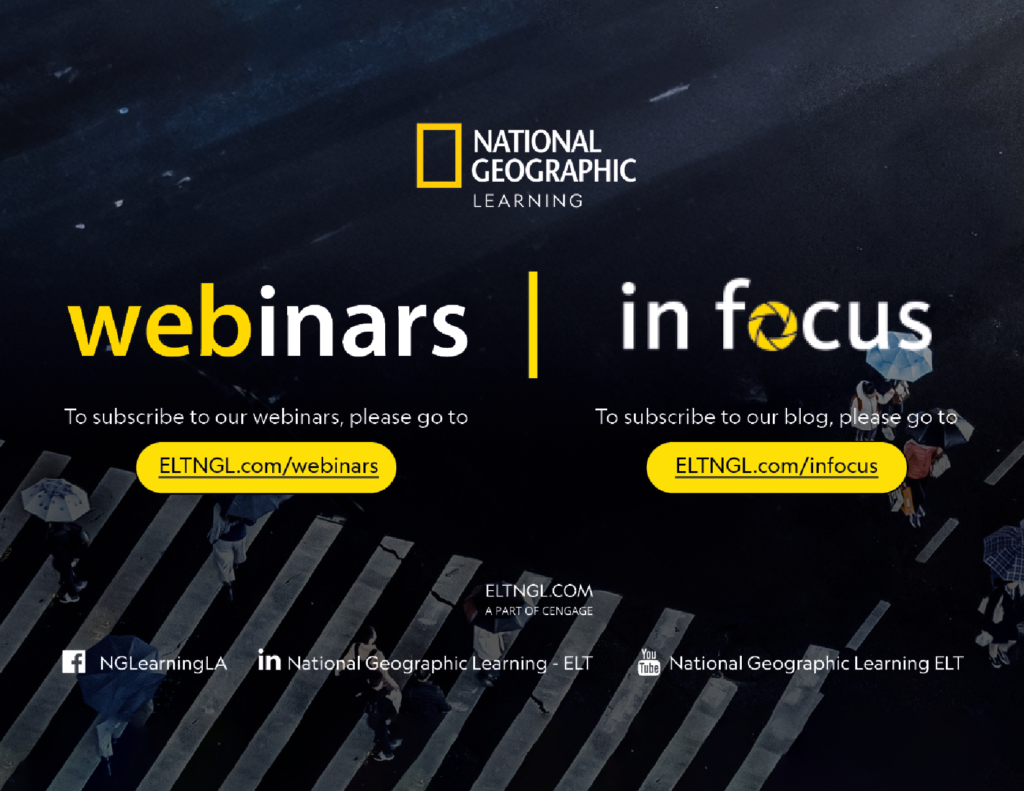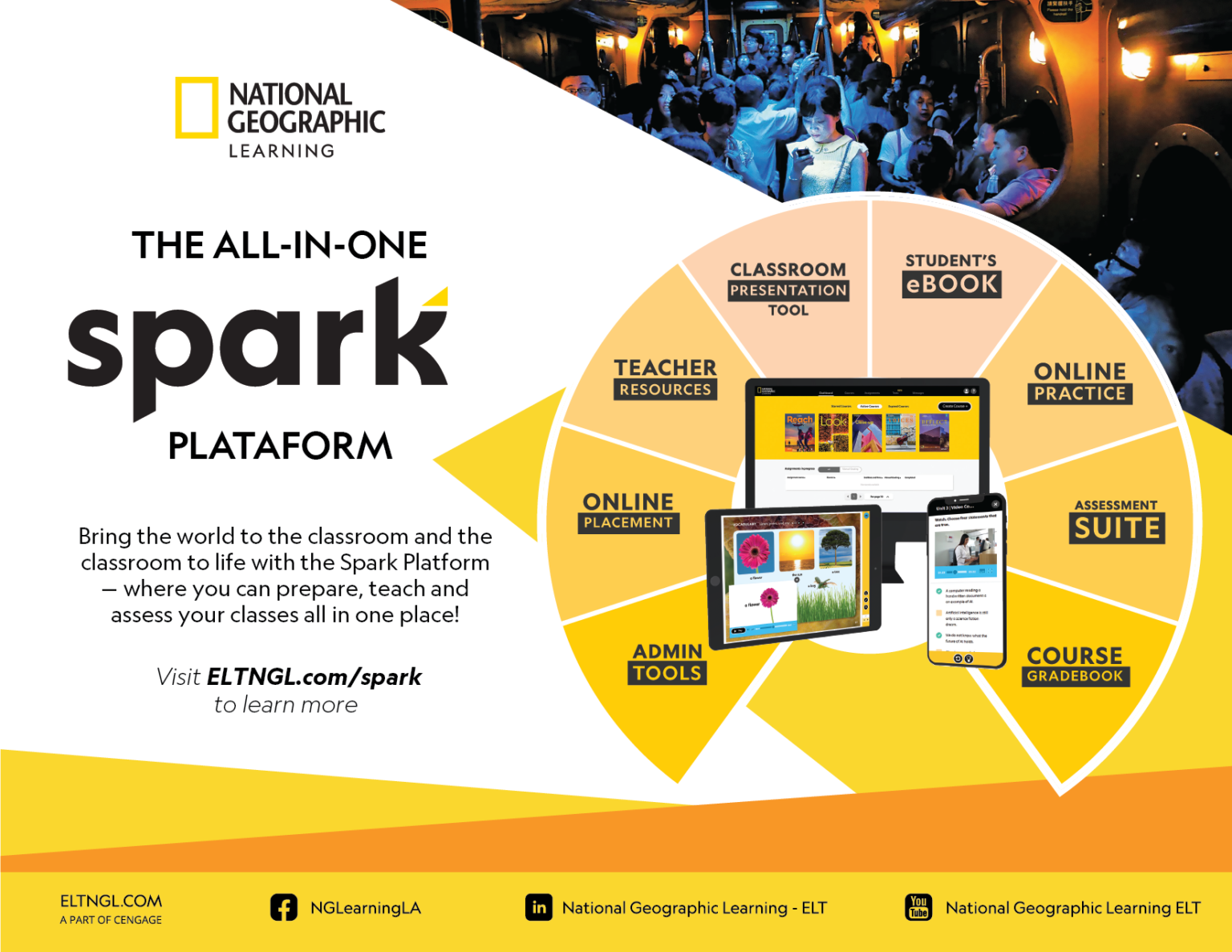
For almost two decades, the TESOL conference has left an indelible mark on the field of English language education in the Dominican Republic. This annual gathering of passionate educators, dedicated to the art of teaching English as a second language, has catalyzed transformative changes in the local education landscape. Through innovative pedagogical approaches, technology integration, and cross-cultural exchange, the conference has empowered Dominican English teachers to inspire and equip countless students with the essential skills for global communication.
As a result, the country has witnessed a notable increase in English proficiency, opening doors to improved educational and employment opportunities for its citizens. Beyond the classroom, the conference has fostered a vibrant professional community, nurturing collaboration, and the sharing of best practices, ultimately contributing to the continued growth and excellence of English language instruction in the Dominican Republic.
Get to know our facilitators
Plenary Sessions
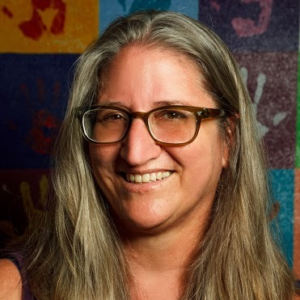
Mary Scholl
Mary Scholl deeply values presence, learning, empathy, creativity, and curiosity and is founder and fellow of the Institute for Collaborative Learning in Costa Rica. She has been teaching language for 30 years, designing and implementing educational projects in Latin America for over 18 years and served as an English language specialist for 16 years in 9 countries. A teacher-trainer and trainer of trainers, Mary is also a certified practitioner and facilitator at the Centre for Holding Space and holds a certification in teaching mindfulness meditation from Greater Good Science Center and The Awareness Training Institute at the University of California at Berkeley. She holds an MA in Teaching English and Spanish from SIT Graduate Institute and has done doctoral studies in Adult Learning and Leadership at Teachers College at Columbia University. She has lived and/or taught on four continents and currently enjoys working virtually around the world from her home in rural Costa Rica, in addition to face-to-face work wherever she is invited! She is a frequent presenter at local, national and international conferences In 2021, she was named as one of the top 30 English Language Specialists by the U.S. Department of State in recognition of her lasting impact on the Specialist Program and on the field of TESOL.
Plenary: 1+1= 3 or 2000: Synergy in Our English language Classrooms
What if synergy, when the whole is greater than the sum of its parts, was a core mindset and practice in our work? How might that shift how we co-create learning environments? In this session we will look at the concept of synergy and why it is critical in the English language classroom. We will consider relational components and skills necessary to harness synergy such as deep listening, collaboration, balance, space, trust-building, risk-taking, and play. We will also look at how technology can play a pivotal role in creating synergy. Finally, we will engage in a synergistic activity ourselves to experiment with how synergy can impact our professional learning in a plenary session!
Workshop: Activities to Enhance Synergy in the English Language Classroom
What has to shift inside a teacher in order to go beyond learning about synergy to be able to engage the skills and habits that create the fertile ground for synergistic learning? In this experiential session participants will do a variety of activities that could be used to build the skills and habits that create the conditions for synergistic learning. We will practice mindfulness, empathy, intentional listening, playfulness and creativity, core beliefs in action, and mutual curiosity. We will reflect on how these skills and habits might impact students and their learning and participants will be asked to consider what sort of modifications they might do in their own contexts. Come ready to engage and see how synergy might work for your own learning!
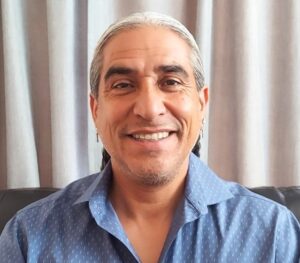
Shatta Mejía
After receiving his Masters degree in Education Supervision and Evaluation, Shatta García Mejía worked in all aspects of schools: teacher, instructional coach, assistant principal, principal, District Director of Educational Equity, and finally, a consultant and content developer with HMH for 6 years. During his time at HMH, Shatta got to know the struggles of teachers in international schools in the Dominican Republic. Now Shatta has created LVM Educational Services, a company focused on Dominican International Schools to help them improve their practices. Shatta has only worked with MultiLingual Learners, helping them to access language through explicit instruction.
Competency based training/teaching is a learning approach that focuses on evaluating if learners have the necessary skills and knowledge to perform realistic jobs/tasks effectively. It emphasizes the development of practical skills and abilities over just providing theoretical knowledge. Therefore, this workshop aims at providing participants with strategies and tools that will help them gear up their grammar sessions, so that what is taught and practiced lead to authentic, practical, and useful communicative competence in all language modes.
Concurrent Sessions
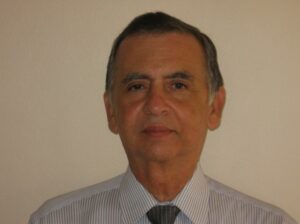
Raúl Billini
Raúl Billini is an Educational Consultant with 61 years of TESOL experience, 12 as a Scott, Foresman and Co. consultant in the US, Caribbean, Central America, and South America. Critic-reading background with National Geographic Learning. Co-author of two national EFL texts published by the Dominican Ministry of Education and author of three ELT texts published by SUSAETA. DEA in Linguistics from Universidad Complutense de Madrid. Presenter at the 1993, 2013, and 2016 International TESOL Conventions.
ELT textbooks are usually written for a global market; consequently, they often lack specific pronunciation, grammatical, and lexical items Spanish speakers desperately need to obtain fluency and accuracy in English. Said shortcomings will be discussed, and a program that will favor learners is proposed.
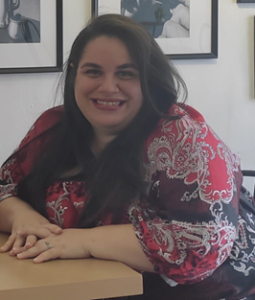
Deborah Larrauri
Deborah Larrauri is celebrating a decade in ESL education and is a tech-savvy educator. For ten years, she has merged ESL with tech, online teaching, and gamification to create vibrant classrooms. Her true calling is nurturing future educators. Currently, she inspires students in the virtual world of online teaching. One of her proudest achievements: former students turned colleagues, showcasing the power of ESL education.
Morning Workshop: AI in Education – A Deterrent or the Natural Next Step?
This workshop aims to explore the transformative potential of Artificial Intelligence (AI) in education, shifting the focus from fear of automation to leveraging AI as a collaborative tool for enriching classroom experiences. We will delve into innovative ways to incorporate AI, such as gamification, and provide a balanced perspective through a pros and cons analysis. Furthermore, we will offer practical, low-tech or low-budget classroom ideas to demonstrate that AI integration is accessible to all educators. In addition, teachers will leave this workshop equipped with tangible tools and actionable steps to seamlessly integrate technology into their classrooms.
Afternoon Workshop: Boost ELT Impact: Social Media Sparks
In this workshop, we’ll explore the practical side of social media in English Language Teaching (ELT). Discover various platforms and how they can enhance your teaching. We’ll discuss aligning social media with your teaching objectives and effective assessment methods. Expect solutions to common challenges in integrating social media. Leave with actionable insights for a more engaging ELT classroom. It’s a balanced mix of knowledge and practicality to boost your
teaching impact.

Amiris Helena
Amiris Helena is currently the Academic Director of Centro Cultural Dominico Americano in Santiago. She is a teacher’s trainer and belongs to the SIT teachers certificate program. She has been elected as TESOL board member in 2018. Amiris is also a part of the Round Table to find ways to implement English in our public schools. Certified by the University of Baltimore Maryland and Certified by SIT. Since 2004 Certified as Coach and in 2018 Certified Coach by Costa Rica Centro Espiral Mana.
In this workshop teachers will learn to face those challenging moments, as teachers we need to know how to create spaces that are safe and brave at the same time, a place where our students will not be exposed to discrimination, criticism, harassment or any other emotional or physical harm.” When attempting to have discussion around difficult and/or sensitive topics such as race, power, privilege, and the various forms of oppression for the purpose of learning.
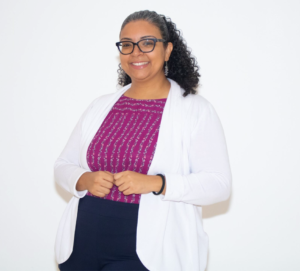
Anabel Camacho
Anabel Camacho is a teacher and trainer from Dominican Republic who started her TESOL career in 2007. She became a SIT Licensed trainer in 2018 and holds an MA in Teaching English to speakers of other languages from Marlboro College Graduate School. In addition, she completed an online certification for Online Teaching from the Benito Juarez University from Mexico. She works for the Binational Center Instituto Cultural Domínico Americano (ICDA) as the Dominico Americano School High School Principal for the 9th-12th program developing and coordinating efforts for the academic curricula and student cultural activities, besides coaching and accompanying teachers in their professional practice. She also collaborates as a resident trainer and instructional coach for the Teacher Development Center (TDC) in the Domínico Americano University in different teacher professional development projects. Anabel is curious to observe learning and teaching from the learner’s perspective. As a teacher and trainer, she is eager to cultivate experience that allows self-driven, meaningful, and durable learning. Anabel loves traveling and has conducted teacher training, course, and content design in projects from Costa Rica, Peru, United States and the Dominican Republic.
This session is a take on a previous research project dedicated to understanding and connecting to the English Language Learner as a whole. It focuses on developing conceptual analysis and pedagogical views on bilingualism and its impact on learning. We will explore the roots and structural functions that the language takes when it’s been used by speakers of different cultural backgrounds and levels as well as the role of the L1 and L2 in the pathway to communication thus understanding.
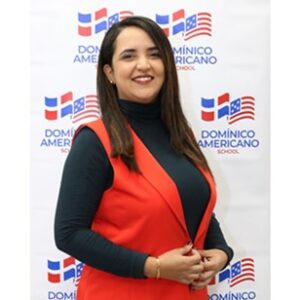
Sabrina Acosta
Sabrina Acosta is the Elementary Principal in Dominico Americano School with 13+ years of experience in the field of Education. Professor at Universidad Abierta para Adultos (UAPA) in the Language Undergraduate Program. She holds a bachelor’s degree in Modern Languages, Master´s Degree in Applied Linguistics, and a Specialization in Strategic Leadership and Management. She is actively engaged with The John Maxwell Leadership Foundation Team in the Dominican Republic as Transformation Tables’ interpreter and facilitator.
Leaders in educational environments have the challenge to motivate and inspire learners from different backgrounds, interests, and personalities. It is time to redefine leadership not exclusively linked to the role in the organization but linked with relationship, cooperation, mentorship, and reference. This workshop will dig into the five strategies that make shared leadership sustainable and address some of the challenges that learning community members might experience co-creating a positive climate.
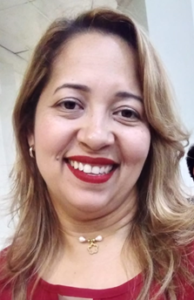
Alejandrina Rojas
Alejandrina Rojas was born in Moca, Dominican Republic. She began teaching English as a Foreign Language in 2000 at the New York Center Institute until 2012. She got a degree in accounting at Universidad Tecnológica de Santiago, (UTESA) in 2010.Alejandrina worked for the Instituto de Desarrollo Intergral Leonardo Da Vinci School from 2007 until 2014 as an English Teacher when she was hired by Colegio Dominicano Bilingual School from 2014-2016. She also worked as a teacher for the English Immersion Program from the Ministry of Education, Science and Technology (MESCYT) from 2011 until 2017. She has been teaching English at Centro Cultural Dominico Americano since 2015. In 2017 She was trained in Teacher’s Training Course at CCDA. She became a member of TESOL in 2017. She has attended to many conferences for English teachers. She started a master’s in School Management at tech University. She has been working at Colegio Salesiano Don Bosco, Moca as the academic director since 2017.
In this presentation teachers will reflect on their strategies to teach vocabulary, so they can recognize the importance of teaching vocabulary with techniques that engage students to use the right words to have effective communication. Teachers will also share with their colleagues those strategies that have worked for them when teaching new words to students. Teachers will practice with some interesting and fun VAK activities used for vocabulary teaching.
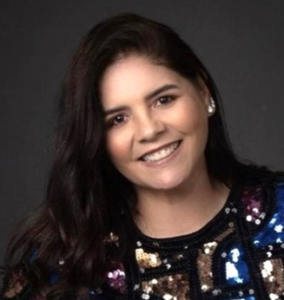
Marlen Fernández
Marlen Fernández is a Civil Engineer with a master’s in business administration from the Pontificia Universidad Católica Madre y Maestra. She is currently working as a Purchase Manager at the Centro Cultural Domínico Americano, Santiago. In addition to her professional work, she has been teaching English as a foreign language for the past 7 years. She participated in the last ABLA conference, and she is also in charge of the American English Lounge at CCDA in Santiago.
As the pandemic hit, it forced many educational institutions to shift to online learning. While online classes have their benefits, they can also be stressful and overwhelming for students. In this presentation, we will explore how to make your online classes more mindful and less stressful for students.
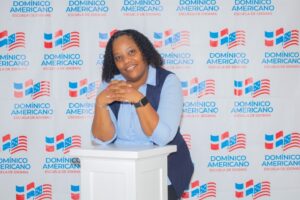
Keyla Rivera
Keyla Rivera is from the British Virgin Islands. She currently works as an Academic Coordinator at the Instituto Cultural Dominico Americano and in the specialized program. She also worked as an English Interpreter in the magistrate court, and her first experience as a teacher was in a preschool teaching 4 to 5 years old kids in the British Virgin Islands. She studied child psychology in the H Lavity Stoutt Community College and has a certificate in TKT. Keyla loves to dance, travel, and spend time with the ones she loves!
In this presentation you will be able to find different techniques and ways to make your class more interesting and fun. Why did I choose this topic? Because many times we as teachers focus on teaching the content of the book and getting it out of the way, but teaching is more than that, we can create a classroom environment that students are eager to go and can’t wait for the next class to come and participate and learn new things.
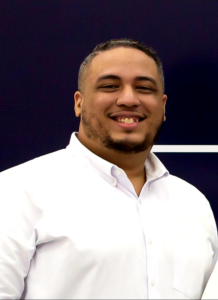
Ivan Lazala
Ivan Lazala holds a bachelor’s degree in software engineering and is currently pursuing a master’s in educational technology from Universidad Abierta para Adultos (UAPA). He currently serves as the Online Program Manager / Ed-Tech Coordinator and English Teacher at the Centro Cultural Domínico-Americano in Santiago, where he coordinates and teaches the Conversation Program and holds a TESOL Certificate from Centro Espiral Maná. Mr. Lazala has also worked with many projects with the support of the US Embassy, such as the Bilingual Executive Assistant Program and the Media Literacy Program to enable youth to distinguish high-quality, fact-based information from that which is biased, poorly researched, false, or malign.
How can I make my class fun and exciting while teaching a new language?
In recent years, the integration of Artificial Intelligence (AI) into education has sparked a revolution in the way we approach language learning. This presentation aims to explore the transformative impact of AI in the context of the English Language Classroom. With a focus on enhancing learning outcomes and fostering a deeper understanding of the English language, the presentation will delve into various AI-driven tools and methodologies designed to support both educators and learners.
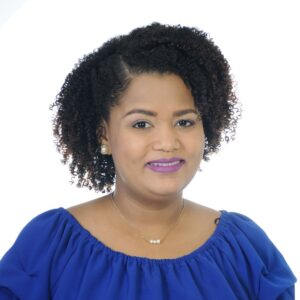
Damy Carrasco
Damy Carrasco works as a Lawyer in her own private office, and since 2009 she has worked as a teacher at the Centro Cultural Dominico Americano, instructing EFL students ages between 11 years old and above starting from a beginner level up to advanced students. Since 2021, she has worked in the same institution as a senior teacher training. She successfully finished taking her first Teacher’s Training Course at the Centro Cultural Dominico Americano in 2009. She majored in Law in 2014 from the Pontificia Universidad Catolica Madre y Maestra in Santiago after graduating with the highest honors, Summa Cum Laude. She has taken several online and on-site courses related to ESL/EFL/ELT teaching, for example, she became an ETS-trained monitor in 2018, as well as attending many English teaching conferences hosted by the Instituto Cultural Dominico Americano between 2010-2019. She had the honor of attending the online TESOL International Convention & English Language Expo twice, in 2021 and 2023. Moreover, between 2020 and early 2021, she took two Online Professional English Network courses (OPEN) simultaneously: “Using Educational Technology in the English Language Classroom Fall 2020” instructed by Iowa State University and the online “Teacher Training Course” held by the Instituto Cultural Dominico Americano.
«The Gamification of ELT: Games to Boost Motivation and Engagement» is a dynamic and interactive workshop designed to explore the use of games in teaching English. This workshop will delve into the theory and practice of game-based learning, demonstrating how games can enhance language acquisition, boost student engagement, and foster a positive learning environment. Participants will gain hands-on experience with a variety of games suitable for different proficiency levels and will learn how to effectively integrate these into their English language teaching strategies. Whether you’re a seasoned educator or a novice teacher, this workshop offers innovative techniques to make English language learning an enjoyable and successful journey for your students.

William Little
William Little is a Regional English Language Officer (RELO) currently based in Panama City, Panama with a portfolio covering Panama and 19 countries in Central America, South America, and the Caribbean. His previous assignments include serving as RELO in Dakar, Senegal and Jakarta, Indonesia, as well as Regional Program Officer for SCA while serving one year in Washington, DC with Office of English Language Programs in the US Department of State. He holds master’s degrees from the University of Colorado, Boulder (Sport Psychology) and the University of Texas, San Antonio (Bicultural – Bilingual Studies) and has over 30 years’ experience in the ESL/EFL field both in the US and overseas. Prior to joining the Bureau of Educational and Cultural Affairs in 2015, Bill was a professor at Georgetown University for 10 years at the Center for Language and Education Development. His primary interests in teaching and education are blended learning with mobile devices, teaching and learning applications, learner autonomy and social entrepreneurship.
You have probably heard that the US Embassy in Santo Domingo does things with English education, but you’re maybe unsure as to what it is and how you can participate. We got you! Join the Regional English Language Officer, Bill Little, for an interactive session about programs and resources to support you as an English teacher. In this presentation you’ll also learn about upcoming programs from the US Embassy in Santo Domingo for teachers and how you can be part of them! (Secret: Attendees of this session will participate in a giveaway of English teaching board games).
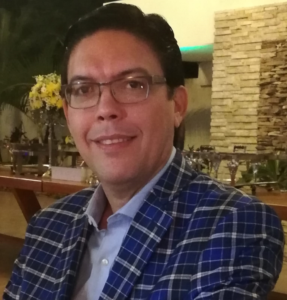
Ruben Uceta
Ruben Uceta has a B.A. in Modern Languages concentration Tourism and a Master’s Degree on Education concentration School Management from Universidad Abierta Para Adultos (UAPA). He did the TESOL Certificate Course at Centro Espiral Maná, Costa Rica where he also became an SIT Licensed Teacher Trainer. Ruben is currently an EFL teacher and Academic Coordinator at Centro Cultural Domínico Americano. He is an NGL consultant. He has been an English teacher for 34 years and a TESOL member for 15 years.
This workshop is meant to share my practice as an English teacher who has dealt with pronunciation issues that students face daily when learning the language. I will talk about pronunciation in general and how it helps or hinders a student`s development/fluency; the most common mistakes students make when pronouncing words and will have participants interact about their experiences.
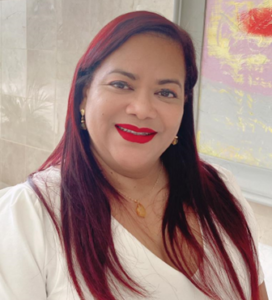
Alexandra García
Alexandra García is a professional of education with a Ph.D. in Educational Leadership, an Ed.D. in TSOL from Atlantic International University, and a master’s degree in TSOL from NOVA Southeastern university. She has vast experience in English teaching in public schools, universities and at the ICDA. Now Alexandra is the head of the Development Department at Las Americas Institute of Technology (ITLA), and Master’s coordinator unit at UNICDA.
Teachers should be active, instructive, collaborative. The professor should keep learners doing things that guide them to reach the pedagogical goals. Thus, it is necessary to propose interesting activities that make sense for them and that involve interaction with their classmates.
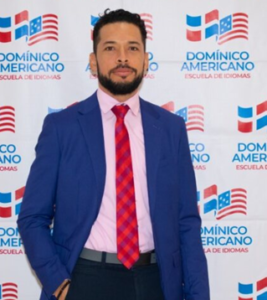
Kelvin Fajardo
Kelvin Fajardo is an English teacher and facilitator with more than 12 years of experience in the ELT field. He got a TESOL certification here in D.R. through the School for International Training (SIT Graduating Institute) and the Instituto Cultural Dominico Americano (ICDA). He was part of the English Immersion Program for the Competitiveness From El Ministerio de Educación Superior Ciencia Y Tecnología (MESCYT), for almost ten years. During his tenure in the program, he was able not only to assist hundreds of students in the acquisition of the English language, but also guide new and experienced teachers alike in the development and improvement of their skills. Similarly, Mr. Fajardo has held managerial positions in other institutions in the city of Santo Domingo, Bavaro, Punta Cana. He is currently occupying the position of supervisor of the language school in the ICDA.
Language Ego and Language Ego Permeability. While Language Ego is the identity a speaker of a language has as a speaker of a certain language, this built upon the experiences that the user has experimented with the language itself, Language Ego Permeability is the ability that said speaker has to allow his/her preconceived identity to go through the wall that Language Ego is, to be used in the making of the Ego of the new language to be acquired. Studies done by Dewaele & Wei, 2012 and Celce-Murcia et al., 2010 show that the higher the permeability of the student’s language ego is, the easier it is for them to mimic the target language will be.
This presentation aims to show something found on a study in 2016, that the understanding of Language Ego and Language Ego Permeability will help the facilitator assist the students design and develop emotionally healthy traits that will ultimately service the learners on giving the extra and use it inside and outside the classroom to acquire the language.
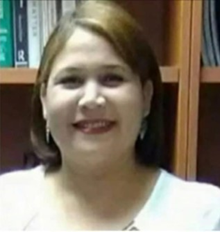
Santa Cabrera
Santa Cabrera is in charge of the Evaluation Department of the Instituto Dominicano de Evaluación e Investigación de la Calidad Educativa, IDEICE , and National Project Manager of the PISA Test in the Dominican Republic. Professor with more than 15 years of experience in Teaching Curriculum Design and Educational Evaluation. International Speaker on Linguistic Anxiety in Foreign Language Learning and Factors associated with the development of EFL/FLE linguistic skills Graduated from Universities: Université des Antilles de Guyane, UAG, Martinique, France. Universidad Autónoma de Santo Domingo UASD., Universidad Tecnológica de Santiago, UTESA, Dom Rep. Chico State University California, USA, Universidad Católica de Uruguay.
The Dominican Republic faces great challenges in pre-university education and one of them is learning the English language with a B1 linguistic level. Recent studies, OECD, 2018, have shown that promoting a growth mindset in our students and teachers is beneficial for good performance. Research linking mindset and mental health suggests that mindset influences overall well-being as it can buffer or aggravate the adverse impact of negative life events. PISA data reveal that having a growth mindset is associated with positive attitudes toward learning: self-efficacy, less fear of failure, ambitious learning goals, and appreciation of the value of school. It is also positively associated with well-being measured in life evaluation, the appearance of positive feelings and the sense of belonging to school.
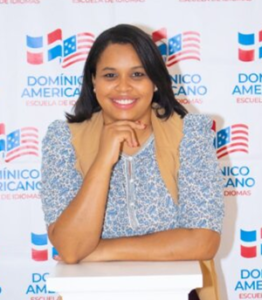
Fauris Rivera
Fauris Raquel Rivera Baez is a dedicated educator who has seamlessly transitioned from teaching to an academic leadership role. With two years of experience as a teacher and currently serving as an Academic Leader and New Teachers Mentor, Fauris brings a wealth of knowledge and expertise to the field of education. In the role of Academic Leader, Fauris’s personal and professional goals are twofold. Professionally, they aim to foster a dynamic and collaborative learning environment, empowering educators, and students alike to reach their full potential. Personally, Fauris aspires to continually develop as an effective leader, mentor, and lifelong learner. She possesses a diverse skill set, including expertise in supervision techniques, emotional intelligence, training in virtual environments, and conflict management. She holds a diploma in Human Management by Competence, demonstrating their commitment to continuous improvement and effective leadership.
In this presentation, we will explore the fascinating concept of leading without holding a formal leadership title. Leadership isn’t confined to a specific role; it’s a dynamic quality that can be exhibited by anyone, at any level. Let’s explore the secrets of leadership that go beyond formal roles in this engaging presentation. Discover how you can influence, inspire change, and make a significant impact, whether you hold a leadership title or not.
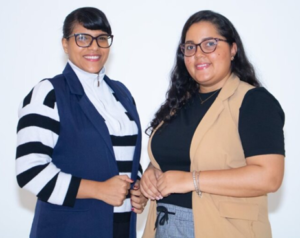
Yissel Familia
Edmery Batista
Yissel Familia holds an MBA from Barna Management School. She is currently teaching in Highschool at Dominico Americano School (DAS). She possesses a solid five-year background in the field of education, with extensive experience in teaching. Successfully completed the Professional Development for Teacher Trainers program by Arizona State University in partnership with the U.S. Department of State’s OPEN program. Yissel has also undertaken advanced training in digital education, competency-based assessment, and creative thinking development at Universidad Internacional de La Rioja (UNIR). In 2023, she furthered her professional development through various workshops and received the Tri-Association Conference Certificate themed «Exceptional learning in Exceptional times,» This conference provided her with an opportunity to deepen her knowledge and expertise in the field of ELT.
Edmery Batista holds a Master’s in Teaching English as a Second Language from Universidad Dominico Americano (UNICDA), complemented by a Master’s degree in Social & Corporate Events Protocols from Universidad de Cadiz (UCA). She also has a certificate in Advanced Training in Digital Education, Assessment by Competencies and Development of Creative Thinking at Universidad Internacional de La Rioja (UNIR). With over seven years of experience in the education sector, she has honed her expertise in language acquisition and pedagogy. As a participant in the 2023 Tri-association Conference themed «Exceptional learning in Exceptional times,» she engaged with leaders in the field, broadening her perspectives on ELT. Currently, Edmery is teaching in Low Elementary at Dominico Americano School (DAS).
«Empowering Education: Harnessing Technology and AI for Classroom Success» is an innovative and informative workshop designed to explore the integration of cutting-edge technology and artificial intelligence (AI) into the educational landscape. This workshop aims to empower educators, and education enthusiasts with the knowledge and tools needed to enhance the quality of classroom instruction, student engagement, and learning outcomes through the strategic implementation of technology and AI solutions. Participants will delve into the transformative potential of these tools, gain practical insights, and develop a clear vision of how to leverage them effectively in educational settings.
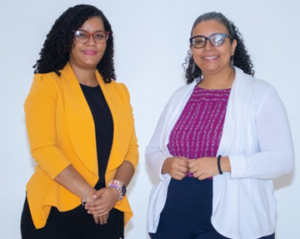
Orly Rojas
Anabel Camacho
Orly Rojas is the Leader of the Curricular department at Dominico Americano School. She has a master’s degree in teaching English as a Foreign Language with more than 15 years of experience in the educational field in different positions throughout the years. As part of the leadership team, she provides coaching and guidance to educators. She is enthusiastic about innovative teaching methods in the classroom, coaching educators, and leveraging data for informed decision-making.
Anabel Camacho is a teacher and trainer from Dominican Republic who started her TESOL career in 2007. She became a SIT Licensed trainer in 2018 and holds an MA in Teaching English to speakers of other languages from Marlboro College Graduate School. In addition, she completed an online certification for Online Teaching from the Benito Juarez University from Mexico. She works for the Binational Center Instituto Cultural Domínico Americano (ICDA) as the Dominico Americano School High School Principal for the 9th-12th program developing and coordinating efforts for the academic curricula and student cultural activities, besides coaching and accompanying teachers in their professional practice. She also collaborates as a resident trainer and instructional coach for the Teacher Development Center (TDC) in the Domínico Americano University in different teacher professional development projects.
Based on a recent learning journey to Colombia, we will be presenting key main learnings on what successful learning looks like today in these “exceptional times”. We will be sharing key takeaways from the Tri-Association Conference based on how leadership supports teaching and learning in the classroom through vision and purpose.
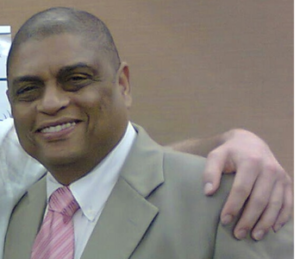
Sabino Morla
Sabino Morla has a master’s in applied linguistics- UASD. English professor (literature, academic writing, phonetics, ESP- Computer Science & Medicine. TOEFL- IELTS Training. SIT- TESOL CERTIFIED 2015. Teacher’s Trainer USMB 2018. PR-TESOL International Member; TESOL international Member. Assisted the creation of MINERD’s current English curriculum.
Competency based training/teaching is a learning approach that focuses on evaluating if learners have the necessary skills and knowledge to perform realistic jobs/tasks effectively. It emphasizes the development of practical skills and abilities over just providing theoretical knowledge. Therefore, this workshop aims at providing participants with strategies and tools that will help them gear up their grammar sessions, so that what is taught and practiced lead to authentic, practical, and useful communicative competence in all language modes.
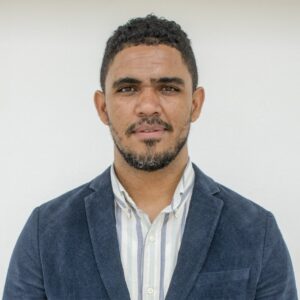
Amaury Beltre
Amaury Beltre holds a bachelor’s degree in Modern Languages, with a major in English, and a Master’s degree in Applied Linguistics for English Language Teaching from Universidad Autónoma de Santo Domingo (UASD). Currently, he serves as a Teacher and Coordinator of Diplomado Intensivo de Inglés para Docentes at Urania Montás, Campus of the Instituto Superior de Formación Docente Salomé Ureña (ISFODOSU). He is also a Language Instructor at the Ministry of Education in the Dominican Republic (MINERD) and has been hired to teach classes at UASD.
In addition to his teaching roles, Amaury is an active member of Urania Montás’ Grupo Interdisciplinario de Investigación Educativa Urania Montás (GII EUM). He has presented research findings at various conferences, including the 9th Pre-Congress ISFODOSU-IDEICE 2019, 2do, 3ro y 4to Congreso Caribeño de Investigación Educativa, Seminars on Best Practices in 2020, 2021, and 2022 at Urania Montás Campus, and other events such as workshops on innovative language teaching and service-learning initiatives.
The theme of the presentation is research experiences in English language teaching. Its aim is to show research results and good practices developed in English language teaching in the 02 region, districts 02-05 and 02-06. For this purpose, results of research carried out on a university campus and several schools within this region are presented. The conclusions of the studies carried out show that teachers should continually research topics related to the area they teach to improve their teaching practice and develop expertise.
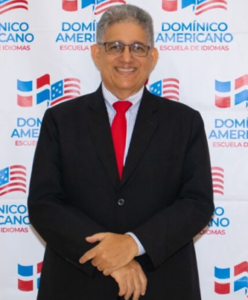
José Miguel Bernard
José Bernard has been an English teacher for 40 years. He has been awarded bands 3 in the Teaching Knowledge Test by Cambridge Language Assessment. He has held different positions in the ELT field such as EFL teacher, English program coordinator in several schools in Santo Domingo and teacher trainer. He currently works as an EFL teacher at Instituto Cultural Dominico Americano Language School.
In addition to his teaching roles, Amaury is an active member of Urania Montás’ Grupo Interdisciplinario de Investigación Educativa Urania Montás (GII EUM). He has presented research findings at various conferences, including the 9th Pre-Congress ISFODOSU-IDEICE 2019, 2do, 3ro y 4to Congreso Caribeño de Investigación Educativa, Seminars on Best Practices in 2020, 2021, and 2022 at Urania Montás Campus, and other events such as workshops on innovative language teaching and service-learning initiatives.
The purpose of this workshop is to discuss the essential elements and significant factors that can effectively help language learners reach the lesson’s desired results. Participants will be invited to interact with one another, describe two model lessons and have a brainstorming session to explore some of the practices that expert teachers employ in their classes.
National Geographic Learning
